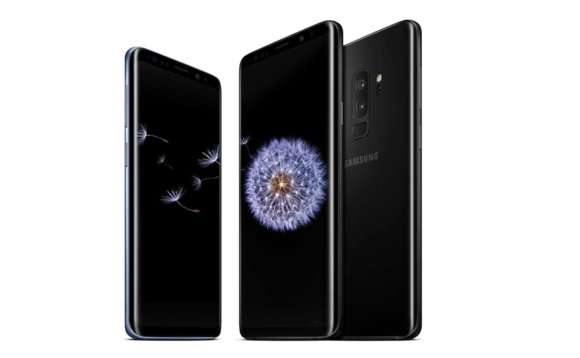Next week, the iPhone X has a new competitor.
On March 16, Samsung launches the Galaxy S9 and S9+, the new flagship Android handsets from the South Korean electronics giant.
The smartphones are available at all four major U.S. carriers: AT&T, Sprint, T-Mobile and Verizon.
It's a great time to shop for a smartphone, with several options available including Apple's iPhone and Google's Pixel line.
How does the S9 and S9+ compare to premium rivals such as the iPhone X, iPhone 8 and 8 Plus, and Google's Pixel 2? Let's break it down:
Size
The Galaxy S9 screen clocks in at 5.8 inches, the same size as the iPhone X, and considerably larger than the iPhone 8 (4.7 inches) and Pixel 2 (5 inches).
The S9+ features a 6.2-inch screen, on par with the Pixel 2 XL (6 inches) and bigger than the 5.5-inch display on an iPhone 8 Plus.
And although the screen takes up the majority of the real estate on the hardware, it remains similar in size to rival devices.
Camera
Although the S9 is comparable to an iPhone X in design, its camera specs line up more closely with the iPhone 8. It boasts a 12-megapixel rear camera with optical image stabilization, 8X digital zoom, and features like Motion Photo and augmented reality emoji (one feature only iPhone X utilizes).
The S9+ sports a dual camera system, featuring wide-angle and telephoto systems, similar to the 8 Plus and X. According to DxOMark, which rates DSLR and smartphone cameras, the S9+ earns a 99 ranking, ahead of the Pixel 2 (98) and iPhone X (97).
Battery life
Samsung claims the S9 will offer up to 14 hours of battery life if you use the Internet on Wi-Fi, with a slight dropoff if you are surfing via network. You also get up to 16 hours of video playback.
For the S9+, you can watch video up to 18 hours and surf the Web up to 15 hours while using Wi-Fi. That's better by roughly an hour or two compared to all iPhone models.
Google does not provide specifics on battery life for the Pixel 2 models, other than it gets 7 hours of life off a 15-minute charge.
Both Samsung and Apple offer wireless charging and "fast charging," while Google only features wired charging.
Operating system
Pixel and Galaxy S9 models run on Android 8.0, the latest version of Google's mobile operating software. Pixel provides the closest thing to a pure Google Android experience, while Samsung sprinkles in its own features such as the Bixby voice assistant and Samsung Pay. The iPhone runs on iOS 11.
Price
If you want a great smartphone on a budget, the Pixel 2 is the least expensive starting at $649, followed by the iPhone 8 at $699. The Galaxy S9 sits in the middle starting at $720, while the S9+ starts at $840, pricier than the iPhone 8 Plus but a hair cheaper than the Pixel 2 XL. The iPhone X wears the most expensive smartphone crown, with its $999 price tag.
What we've learned
Choosing a smartphone is such a personal choice. Do you want to save money? Do you use your phone to surf the Web a lot, or watch videos, or play games? Are you a diehard iOS fan? Can you not live without Android?
We've reached a point with all these smartphones where innovation creeps at a much slower pace, plus the quality of these phones is so good you can't really pick a bad one out of this bunch.
©2018 USA Today
Distributed by Tribune Content Agency, LLC.





















